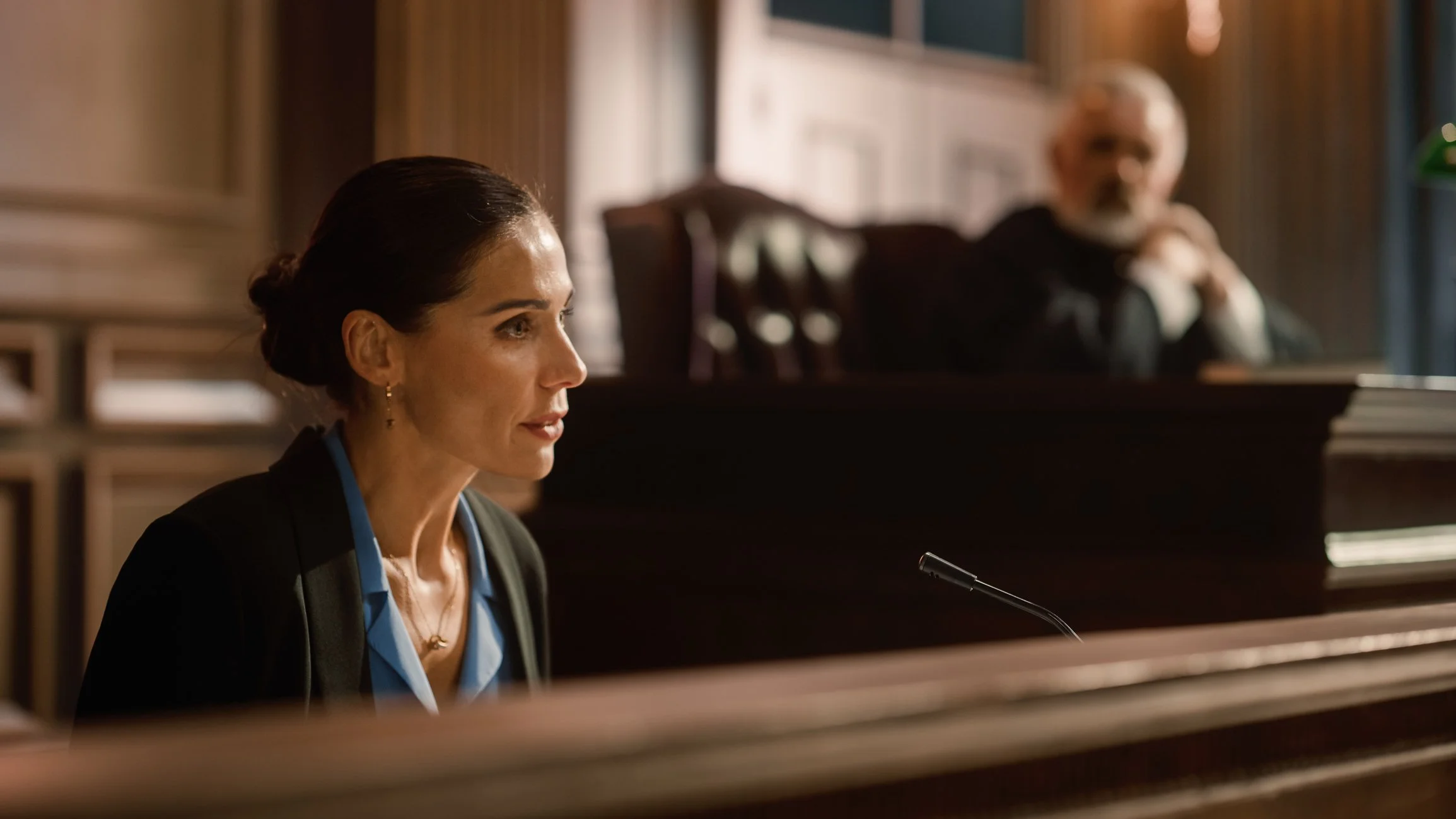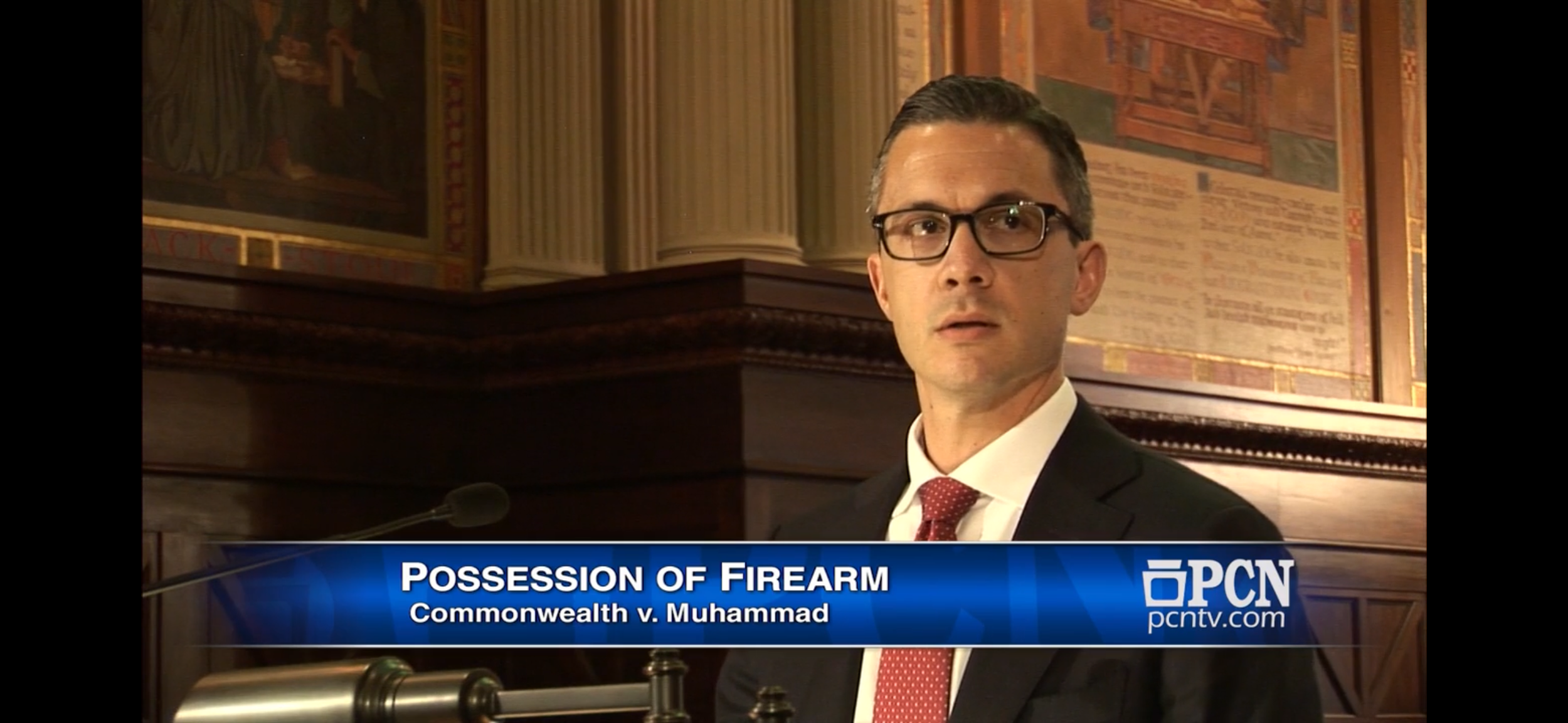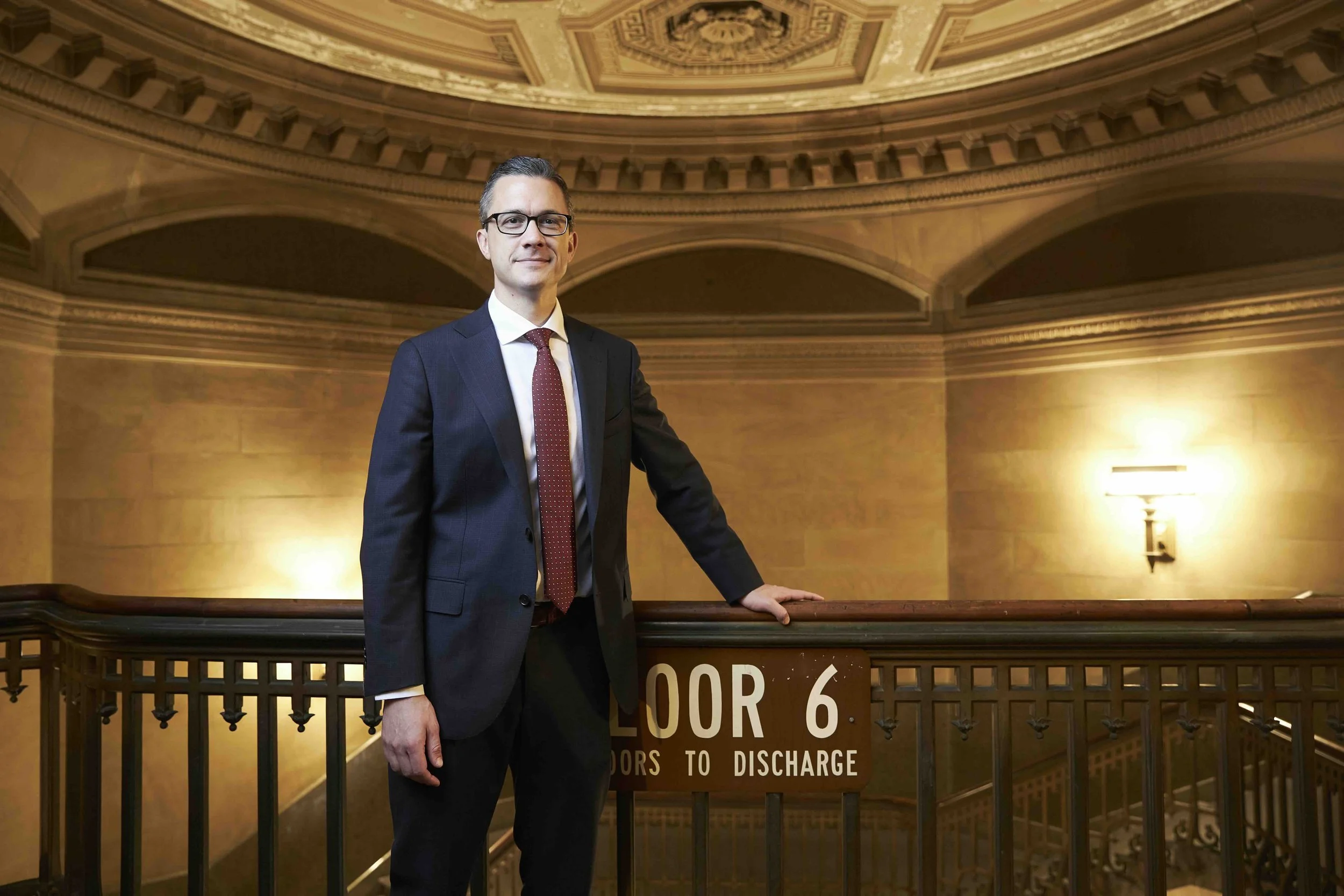
Philadelphia Criminal Defense Blog
PA Superior Court: Spouse’s Flight Into Traffic Was a Foreseeable Result of Defendant’s Assault, Not a Superseding Cause
Criminal Defense Lawyer Zak T. Goldstein, Esquire
The Pennsylvania Superior Court has decided the case of Commonwealth v. Garcia Arce, No. 405 MDA 2025 (Pa. Super. 2026), holding that a defendant's convictions for involuntary manslaughter and recklessly endangering another person ("REAP") were supported by sufficient evidence where his reckless driving, assault on the victim, and forcible removal of the victim from a vehicle in the median of a busy interstate foreseeably led to the victim’s death. The Court rejected the defendant’s argument that the victim’s decision to run into oncoming traffic constituted a superseding cause that broke the chain of causation. This is an important case for anyone facing involuntary manslaughter charges in Pennsylvania because it illustrates how broadly courts will apply the concept of legal causation even where the defendant did not directly inflict the fatal injury.
The Facts of Commonwealth v. Garcia Arce
The defendant and the victim, his spouse, were traveling westbound on Interstate 80 in Columbia County along with the victim’s elderly mother, who was seated in the back. The defendant. A verbal argument erupted after the defendant told the victim he wanted a divorce.
According to the victim’s mother, the defendant began speeding and swerving across the lane while screaming at the victim, who was trying to sleep. The defendant poked the victim and yelled at him to talk, growing increasingly angry when the victim did not respond. At one point, the victim reached over and turned off the car as the defendant drove into the grassy median of the highway.
Once the SUV stopped in the median just a few feet from the eastbound travel lanes, the situation escalated further. The mother testified that the defendant placed the victim in a chokehold, struck him with his cellphone, and then dragged him out of the vehicle through the driver’s side door. The victim was left standing in front of the SUV, bleeding from his face, just feet from high-speed traffic on a dark stretch of highway.
Moments later, the victim moved into the eastbound lanes and was struck and killed by a truck hauling a trailer. A second vehicle also hit the victim. The coroner testified that but for the events leading to the victim’s removal from the SUV and the assault he suffered, the victim would likely have survived. The coroner also ruled out the victim’s history of bipolar disorder as a contributing factor in his death, and noted that the head and facial injuries from the assault could have impaired his orientation and judgment.
The defendant testified in his own defense and offered a substantially different version of events. He claimed that the victim had grabbed the steering wheel, causing the vehicle to veer into the median, and that the victim then exited the SUV on his own and ran into traffic. However, investigators noted that the defendant gave inconsistent accounts of what happened, including conflicting descriptions of how the victim left the vehicle.
The jury convicted the defendant of involuntary manslaughter and REAP. The trial court had earlier granted a demurrer on an aggravated assault charge. The defendant was sentenced to ten months to two years of incarceration. He appealed.
The Superior Court's Analysis
On appeal, the defendant raised two main arguments: that the evidence was insufficient to sustain his convictions and that the verdict was against the weight of the evidence.
Sufficiency - Causation and Superseding Cause
The defendant’s primary argument was that the victim’s decision to run into traffic was an unforeseeable, independent act that broke the chain of causation. He argued that after the physical altercation ended, the victim voluntarily entered the roadway, and therefore the defendant’s conduct was not the direct cause of the victim’s death.
The Superior Court disagreed. Relying on Commonwealth v. Rementer, 598 A.2d 1300 (Pa. Super. 1991), the Court held that when a defendant’s violent assault causes the victim to flee, the victim’s flight, even into a dangerous situation, is a foreseeable consequence of the defendant’s actions, not a superseding cause. In Rementer, a defendant who violently assaulted a victim was convicted of third-degree murder after the victim fled into the path of a car. The Court held that although the precise mechanism of death was not foreseeable, the risk of serious injury or death was inherent in the situation the defendant created.
The Court applied the same reasoning here. The defendant’s reckless driving, his assault on the victim in the car, and his forcible removal of the victim from the SUV in the median of a busy interstate, in the dark, just feet from high-speed traffic, set in motion the chain of events that led to the victim’s death. The victim’s attempt to flee was a natural and predictable response to the defendant’s conduct. The Court emphasized that a defendant cannot create a dangerous situation through his own reckless behavior and then avoid criminal liability by arguing that the victim's response to that danger was unforeseeable.
Weight of the Evidence
The defendant also argued that the verdict was against the weight of the evidence, primarily attacking the credibility of the victim’s mother. He pointed to her poor eyesight, the darkness at the scene, her financial interest in wrongful-death litigation, and prior theft convictions. He also argued that other witnesses’ testimony actually supported his version of events.
The Superior Court found no abuse of discretion. The trial court had carefully considered these arguments and concluded that the jury was entitled to assess the credibility of the witnesses and choose whom to believe. The Court noted that DNA evidence, including the victim’s blood on the driver’s seat and door panel of the SUV, corroborated the mother’s account of the assault. The jury also viewed dash-camera footage of the fatal collision. The trial court’s determination that the verdict did not shock its sense of justice was well within its discretion.
The Takeaway
This is a significant case on the issue of legal causation in Pennsylvania homicide law. It reinforces the principle that when a defendant’s reckless conduct puts a victim in a dangerous situation, the defendant can be held criminally responsible for the victim's death even if the fatal injury was inflicted by a third party or resulted from the victim’s own attempt to escape. As long as the defendant’s conduct started the chain of events that led to the death, and the victim’s response was a foreseeable reaction to the danger the defendant created, the causal connection is established.
For defendants, this case is a reminder that causation in Pennsylvania criminal law extends beyond the immediate, direct infliction of harm. Prosecutors do not need to prove that a defendant personally delivered the fatal blow, only that the defendant’s reckless actions were a direct and substantial factor leading to the victim's death. The problem for the defendant here is that the death was almost immediate. had the defendant driven away and the victim been struck a few miles down the road while walking towards a rest stop, the result may have been different.
Facing Criminal Charges or Appealing a Criminal Case? We Can Help.
Goldstein Mehta LLC Criminal Defense Attorneys
If you are facing criminal charges or under investigation by the police, we can help. We have successfully defended thousands of clients against criminal charges in courts throughout Pennsylvania and New Jersey. We have successfully obtained full acquittals and dismissals in cases involving charges such as Conspiracy, Aggravated Assault, Rape, Fraud, and Murder. we have also successfully challenged convictions for murder, firearms charges, rape, and other serious convictions on direct appeal in state and federal court as well as through post-conviction relief act litigation. Our award-winning Philadelphia criminal defense lawyers offer a free criminal defense strategy session to any potential client. Call 267-225-2545 to speak with an experienced and understanding defense attorney today.
Attorney Goldstein Obtains $1.75 Million Settlement for Wrongfully Convicted Man Who Spent More Than a Decade in Prison
Philadelphia Criminal Defense Lawyer Zak T. Goldstein, Esquire
Philadelphia criminal defense and civil rights attorney Zak Goldstein recently obtained a $1.75 million settlement against the City of Philadelphia on behalf of a man who was wrongfully convicted and spent more than ten years in prison due to the prosecution's failure to disclose critical evidence. The settlement resolves a federal civil rights lawsuit that was filed after Attorney Goldstein first won the client's freedom by successfully litigating a Post-Conviction Relief Act (PCRA) Petition based on a Brady violation.
The Wrongful Conviction
Our client was convicted and sentenced to a lengthy prison term based on evidence that was fundamentally undermined by materials the prosecution never turned over to the defense. For more than a decade, he sat in prison for a crime while the Commonwealth withheld exculpatory evidence that could have changed the outcome of his case. As is far too common in wrongful conviction cases, the prosecution's failure to disclose this evidence deprived both the defense and the jury of information that was essential to a fair trial.
The PCRA Victory: Proving the Brady Violation
After being retained to investigate the case, Attorney Goldstein uncovered evidence that the prosecution had violated its obligations under *Brady v. Maryland* by withholding material, exculpatory evidence from the defense. Under Brady, the government is required to turn over any evidence that is favorable to the defense and material to the outcome of the case. The suppression of such evidence violates the defendant's constitutional right to due process.
Attorney Goldstein filed a PCRA Petition arguing that the withheld evidence would have significantly impacted the outcome of the trial and that the conviction should be vacated. The PCRA court agreed, and the conviction was overturned. After more than ten years of wrongful imprisonment, our client was finally freed.
The Civil Rights Lawsuit and $1.75 Million Settlement
Following the successful PCRA litigation, Attorney Goldstein filed a civil rights lawsuit against the City of Philadelphia on behalf of his client. The lawsuit alleged that the City, through its police officers and prosecutors, violated our client's constitutional rights by suppressing exculpatory evidence, leading to a wrongful conviction and more than a decade of lost freedom.
The case ultimately settled for $1.75 million. While no amount of money can truly compensate someone for the loss of more than ten years of their life, the settlement provides a measure of accountability and recognition of the harm caused by the government's misconduct.
Wrongful Convictions and Brady Violations
This case is a reminder of the devastating consequences that can result when the government fails to meet its constitutional obligations. Brady v. Maryland requires prosecutors to disclose evidence that is favorable to the defense, and the failure to do so can lead to wrongful convictions, destroyed lives, and years of unjust imprisonment. Unfortunately, these violations are not as rare as they should be, and many wrongful convictions go undetected because the suppressed evidence is never uncovered.
Attorney Goldstein and the attorneys at Goldstein Mehta LLC have extensive experience handling PCRA Petitions, criminal appeals, and civil rights claims arising from wrongful convictions and government misconduct. We have successfully obtained relief for clients who have been wrongfully convicted, including winning exonerations, new trials, and significant civil rights settlements.
Facing Criminal Charges or a Wrongful Conviction?
Goldstein Mehta LLC Criminal Defense
If you or a loved one has been wrongfully convicted or believes that the prosecution withheld evidence in your case, we can help. Our award-winning Philadelphia criminal defense lawyers offer a free criminal defense strategy session to any potential client. We have successfully defended thousands of clients against criminal charges in courts throughout Pennsylvania and New Jersey. We have successfully obtained full acquittals and dismissals in cases involving charges such as Conspiracy, Aggravated Assault, Rape, Violations of the Uniform Firearms Act, and First-Degree Murder. We have also won criminal appeals and PCRAs in state and federal court, including the successful direct appeal of a first-degree murder conviction and the exoneration of a client who spent 33 years in prison for a murder he did not commit. Our experienced criminal defense lawyers are typically available for same-day phone consultations and in-person meetings so that we can begin investigating your case, obtaining exculpatory evidence, and planning your defense. Call 267-225-2545 for a free criminal defense strategy session.
PA Supreme Court: Trial Court May Not Consolidate Separate Sexual Assault Cases Based Solely on “Similar” Allegations, and Rape Kits Are Testimonial Under the Confrontation Clause
Criminal Defense Lawyer Zak T. Goldstein, Esquire
The Pennsylvania Supreme Court has decided the case of Commonwealth v. Walker, holding that the trial court abused its discretion when it consolidated three separately-charged CODIS hit rape cases for a joint trial under the common plan, scheme, or design exception to the rule against propensity evidence.
The Court also held that the admission of rape kit reports without testimony from the nurse examiners who actually prepared them violated the defendant's constitutional right to confrontation. This is a landmark decision that significantly tightens the standard for when the prosecution may try separate offenses together and provides important new protections for defendants in sexual assault cases.
The Facts of Commonwealth v. Walker
In July of 2019, the defendant was arrested and charged with the rape of three different women on three separate occasions — P.C. in January of 2011, T.A. in December of 2014, and B.H. in January of 2015. Each complainant underwent a sexual assault examination after the attack, and DNA from the perpetrator was recovered and uploaded to the Combined DNA Index System (CODIS). In December of 2018, a CODIS search revealed that the male DNA samples from all three victims matched, and that DNA profile was later linked to Walker.
In each case, the defendant met the victim, a stranger, on a public street in Philadelphia, convinced her to follow him to a secluded area, and then sexually assaulted her. However, the specific details of each assault varied significantly. In one case, the perpetrator used a knife; in another, he punched the victim in the face; in the third, he struck the victim with a tire iron. He robbed only one of the three victims. One rape occurred near midnight while the other two occurred during the late morning. Each assault took place in a different Philadelphia neighborhood.
The Commonwealth moved to consolidate all three cases for a joint trial, arguing that the evidence of each assault would be admissible at a trial for the others because the assaults shared sufficient similarities to establish a common plan, scheme, or design. Despite the defendant’s objection, the trial court granted the Commonwealth's motion.
Prior to trial, the defendant also filed a motion in limine seeking to preclude the Commonwealth from introducing the rape kit reports prepared by the sexual assault nurse examiners at the Philadelphia Sexual Assault Response Center (PSARC) for two of the three victims. The Commonwealth acknowledged that the nurses who actually performed the examinations no longer worked at PSARC. Instead, the prosecution planned to introduce the reports through the testimony of PSARC's nurse manager and clinical director who did not personally conduct any of the examinations. The trial court denied the defendnat’s motion.
At trial, the defendant was convicted on numerous charges including rape, involuntary deviate sexual intercourse, and sexual assault. He was sentenced to an aggregate of 28 to 56 years' imprisonment and classified as a Tier III sex offender with lifetime registration under SORNA. The Superior Court affirmed, and the Supreme Court granted allowance of appeal.
The Supreme Court's Ruling on Consolidation
The Pennsylvania Supreme Court reversed, finding that the trial court abused its discretion in consolidating the three cases. Under Pennsylvania Rule of Criminal Procedure 582, separate offenses may be tried together only if the evidence of each offense would be admissible in a separate trial for the other. The key question was therefore whether evidence of the other rapes would have been admissible under the common plan, scheme, or design exception to Pennsylvania Rule of Evidence 404(b), which generally bars the prosecution from introducing evidence of a defendant's other bad acts to show criminal propensity.
Critically, the Court took the opportunity to reshape the law on this issue. Over the years, Pennsylvania courts had applied an increasingly diluted version of the common plan, scheme, or design exception. What started as a narrow exception, requiring either a true overarching plan linking crimes together or a modus operandi so distinctive as to be a signature, had devolved into a vague “logical connection” test that merely required “sufficient similarities” between the crimes. The Court recognized that this relaxed standard effectively gutted Rule 404(b)’s core protection against propensity evidence.
Writing for the majority, Justice McCaffery abrogated the “logical connection” test and returned to the original two-pronged framework from Shaffner v. Commonwealth, 72 Pa. 60 (1872). Going forward, the Commonwealth may consolidate separately-charged offenses under the common plan, scheme, or design exception only where it can establish either: (1) the offenses constitute “signature crimes,” meaning the facts are so unique and distinctive that they must have been committed by the same perpetrator; or (2) the offenses were linked to achieve a common goal, meaning the bad acts are part of an integrated plan to accomplish a specific objective.
Applying this newly clarified standard to the defendant’s case, the Court found that neither exception was satisfied. First, the three rapes did not qualify as signature crimes. While all three involved stranger assaults, the specific details varied considerably. The perpetrator used different weapons (or none at all), initiated contact differently, and committed the assaults in different neighborhoods at different times. These were, as the Court put it, characteristics typical of any stranger rape case, not a unique signature. Second, there was no evidence of a preconceived plan linking the three crimes together to achieve a common goal. The evidence simply showed that the perpetrator raped women when presented with the opportunity to do so. A general desire to commit the same type of crime is not the kind of common plan or scheme that Rule 404(b) contemplates.
The Court also emphasized an important procedural point. The decision to consolidate cases is made pretrial, before the defendant has revealed any defense strategy. The Commonwealth cannot justify consolidation based on its anticipatory rebuttal of a defense, such as a consent defense, that the defendant has not yet raised. A defendant has no duty to present evidence and may instead rely on the presumption of innocence and the Commonwealth's burden of proof.
The Supreme Court's Ruling on the Rape Kit Reports
The Supreme Court also ruled in the defendant’s favor on the Confrontation Clause issue. The Sixth Amendment and Article I, Section 9 of the Pennsylvania Constitution guarantee criminal defendants the right to confront the witnesses against them. In a line of cases including Crawford v. Washington, Melendez-Diaz v. Massachusetts, Bullcoming v. New Mexico, and most recently Smith v. Arizona, the United States Supreme Court has made clear that the Confrontation Clause applies to forensic reports and that the prosecution may not introduce testimonial hearsay, including forensic reports, without providing the defendant an opportunity to cross-examine the person who actually prepared the report.
The Pennsylvania Supreme Court held that rape kit reports are testimonial in nature. The reports are formally titled “Sexual Assault Forensic Examination Forms,” and the very word “forensic” signals their evidentiary purpose. The reports were created primarily to establish past events and collect evidence relevant to a potential criminal prosecution, not simply to provide medical treatment. The Court also noted that Pennsylvania statute explicitly defines a rape kit as a “sexual assault evidence collection kit,” and the law requires health care facilities to notify law enforcement of the alleged assault.
Because the rape kit reports were testimonial and were offered for their truth at trial, the Confrontation Clause required the testimony of the nurse examiners who actually prepared them. The testimony of PSARC’s clinical director, who did not personally perform any of the examinations, was not an adequate substitute. The Court rejected the Commonwealth's argument that the reports were admissible under the medical records or business records exceptions to the hearsay rule. Hearsay exceptions cannot override the Confrontation Clause. When an out-of-court statement constitutes testimonial hearsay, it may not be admitted at trial unless the defendant had the opportunity to cross-examine the declarant, regardless of whether the statement would otherwise qualify as a hearsay exception.
The Takeaway
Commonwealth v. Walker is one of the most significant Pennsylvania Supreme Court decisions in recent years for criminal defendants. On the consolidation issue, the Court meaningfully strengthened the protections of Rule 404(b) by rejecting the watered-down “logical connection” test and demanding that the Commonwealth meet a real standard before it can try separate cases together. This matters because consolidation is enormously prejudicial. A jury hearing about multiple allegations is far more likely to convict on all of them than a jury considering each charge independently. Going forward, the prosecution will need to show either a true signature crime or a genuine common plan linking the offenses together, rather than simply pointing to broad similarities between different cases.
On the Confrontation Clause issue, the decision provides a clear rule for sexual assault cases: the prosecution must produce the actual nurse examiner who prepared the rape kit report, or it cannot introduce the report. This prevents the Commonwealth from relying on a “surrogate witness” who simply reads the absent nurse’s report into the record.
Defense attorneys handling sexual assault cases, cases involving motions to consolidate, or cases involving the admission of forensic reports should take note of this decision and use it to protect their clients’ rights.
Facing Criminal Charges? We Can Help.
Goldstein Mehta LLC Criminal Defense
If you are facing criminal charges or under investigation by the police, we can help. We have successfully defended thousands of clients against criminal charges in courts throughout Pennsylvania and New Jersey. We have successfully obtained full acquittals and dismissals in cases involving Conspiracy, Aggravated Assault, Rape, Violations of the Uniform Firearms Act, and First-Degree Murder. Our award-winning Philadelphia criminal defense lawyers offer a free criminal defense strategy session to any potential client. Call 267-225-2545 to speak with an experienced and understanding defense attorney today.
PA Supreme Court: Expert Testimony on “Manner of Death” Must Be Held to a Reasonable Degree of Medical Certainty
Criminal Defense Lawyer Zak T. Goldstein, Esquire
The Pennsylvania Supreme Court has issued a significant decision in Commonwealth v. Fitzpatrick, ruling that expert witnesses testifying about the "manner of death" in a homicide case must hold their opinions to a "reasonable degree of medical certainty." The Court rejected the Commonwealth’s argument that a lower standard—mere probability—should apply when an expert offers an opinion on whether a death was a homicide or an accident.
This ruling is a critical victory for defendants because it prevents the prosecution from using expert witnesses who are merely guessing or who cannot stand behind their conclusions with the requisite level of professional certainty.
The Facts of the Case
The case arose from a tragic incident in 2012. On June 6, 2012, Annemarie Fitzpatrick drowned in Muddy Creek, a tributary of the Susquehanna River. Her husband, Joseph Fitzpatrick, claimed that they were riding an ATV when the vehicle flipped backwards, throwing them both into the water. He claimed he could not save her.
Police investigations later uncovered suspicious circumstances, including a note in Annemarie’s day planner reading "If something happens to me—JOE," an extramarital affair, and significant life insurance policies. Joseph Fitzpatrick was eventually charged with and convicted of first-degree murder. However, that conviction was overturned because the trial court had improperly admitted the victim's note as evidence.
As the Commonwealth prepared for a retrial, they sought to introduce a new expert witness, Dr. James Caruso. Dr. Caruso, a forensic pathologist, was set to testify that the "manner of death" was homicide rather than an accident. However, during a pre-trial hearing, Dr. Caruso admitted that he did not hold this opinion to a "reasonable degree of medical certainty." Instead, he testified that he believed it was "more likely than not" a homicide.
The trial court ruled that Dr. Caruso’s testimony was inadmissible because it failed to meet the legal standard for expert testimony. The Commonwealth appealed, and the Superior Court reversed the trial court, creating a new rule that "manner of death" opinions need only be "probable" or "sturdy" rather than reasonably certain. The defense appealed to the Pennsylvania Supreme Court.
The Legal Issue
The issue before the Supreme Court was whether expert testimony regarding the manner of death (e.g., homicide, suicide, accident) is subject to the same strict evidentiary standards as testimony regarding the cause of death (e.g., drowning, gunshot wound).
The Commonwealth argued that because a jury can determine the manner of death without expert assistance, an expert who does testify on the subject should not be held to the strict "reasonable degree of medical certainty" standard. They argued that a "more likely than not" standard was sufficient.
The Supreme Court's Decision
In a definitive opinion written by Justice Wecht, the Pennsylvania Supreme Court reversed the Superior Court and reinstated the trial court’s order excluding the expert testimony.
The Court held that all expert testimony, regardless of the topic, must be held to a reasonable degree of professional certainty. The Court explained that experts enjoy a privileged place in the courtroom and are permitted to offer opinions on ultimate issues that lay witnesses cannot. Because of this power, their opinions must be "based on a reasonable degree of medical certainty rather than upon mere speculation".
The Court explicitly rejected the Superior Court's attempt to lower the bar for manner of death testimony. The Court noted that allowing an expert to testify that a homicide was “more likely than not” (a 51% probability) would violate long-standing evidentiary rules, specifically citing the precedent in Griffin, where a 51/49 probability was deemed inadmissible.
Because Dr. Caruso admitted he could not state his opinion to a reasonable degree of medical certainty, his testimony was mere speculation in the eyes of the law and therefore inadmissible.
Key Takeaway
This case reinforces a fundamental protection for criminal defendants in Pennsylvania. The prosecution cannot bolster its case with expert witnesses who are unsure of their conclusions. If an expert is going to tell a jury that a death was a homicide, they must be able to say so with professional certainty, not just as a probability or a guess.
This decision also highlights the importance of rigorous pre-trial litigation. By challenging the expert's qualifications and the certainty of his opinion before the trial began, the defense prevented damaging, unreliable testimony from ever reaching the jury. It is always much harder to undo a wrongful conviction after the fact as appellate courts are often reluctant to overturn jury verdicts and may find harmless error. Additionally, appeals can take years, so even a successful appeal may mean the defendant has spent years in prison during the litigation before winning.
Facing Criminal Charges? We Can Help.
Goldstein Mehta LLC Criminal Defense
If you are facing criminal charges or are under investigation by the police, we can help. We have successfully defended thousands of clients against criminal charges in courts throughout Pennsylvania and New Jersey. We have successfully obtained full acquittals and dismissals in cases involving charges such as Homicide, Aggravated Assault, Rape, and Violations of the Uniform Firearms Act. Our award-winning Philadelphia criminal defense lawyers offer a free criminal defense strategy session to any potential client. Call 267-225-2545 to speak with an experienced and understanding defense attorney today.











